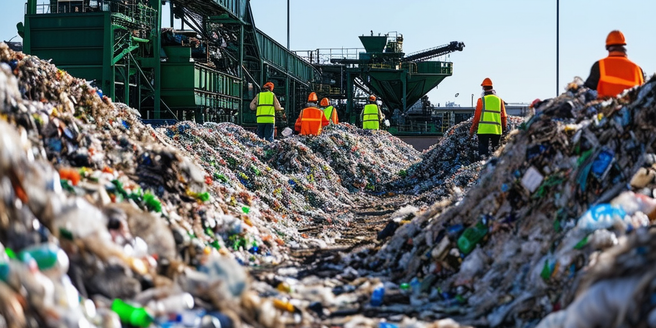
Understanding the Problem with Waste
Waste generation is a growing concern globally, with the average person producing significant amounts of waste daily. This issue stems from overconsumption, inefficient production processes, and a lack of awareness about waste management. Companies and governments need to collaborate to create comprehensive waste management policies. The environmental impact is immense, contributing to pollution, habitat destruction, and climate change. Understanding the root causes of waste and its repercussions is crucial for creating effective strategies to mitigate this problem. By raising awareness and promoting education on waste issues, individuals and communities can begin to make more sustainable choices.
Benefits of Waste Reduction
Reducing waste has numerous benefits, both environmentally and economically. By minimizing waste, we can reduce the strain on landfills, lower greenhouse gas emissions, and conserve natural resources. Economically, waste reduction can lead to cost savings for businesses and consumers through more efficient resource use and reduced disposal costs. Additionally, waste reduction can create opportunities for innovation and job creation in recycling and sustainability sectors. Education and awareness campaigns can further amplify these benefits by encouraging responsible consumer behavior. This not only fosters economic growth but also drives technological advancements. The overall result is a healthier planet and a more sustainable future for generations to come.
Strategies for Reducing Household Waste
Reducing household waste requires concerted efforts and simple changes in daily routines. One effective strategy is to recycle and compost organic waste, diverting it from landfills. Using reusable products, such as shopping bags, bottles, and containers, can significantly cut down on single-use plastics. Additionally, mindful consumption—buying only what is necessary and opting for products with minimal, recyclable packaging—can further reduce waste. Small steps taken by each family member can add up to significant waste reduction. Educating household members about the importance of waste reduction and how they can contribute is also essential for long-term success.
Innovative Recycling Techniques
Advancements in recycling techniques are paving the way for more effective waste management solutions. Innovations like chemical recycling, which breaks down plastics into their original monomers for reuse, offer new possibilities for recycling traditionally hard-to-recycle materials. Another approach is the development of bio-based plastics that are easier to decompose and recycle. Additionally, extensive research is being conducted to find even more efficient recycling methods. Smart bins equipped with AI can sort waste more accurately, improving recycling rates. Governments and organizations are increasingly adopting these cutting-edge technologies. These techniques, combined with public participation, can revolutionize how we manage and reduce waste.
Community Initiatives for Waste Management
Community-driven initiatives play a vital role in waste management and reduction. Local programs that encourage recycling, composting, and the proper disposal of hazardous waste can significantly reduce the waste sent to landfills. Moreover, innovative approaches such as zero-waste stores can promote sustainable consumer habits. Educational campaigns and workshops can equip residents with the knowledge and tools needed to make sustainable choices. Community clean-up events and waste audits can also raise awareness and foster a sense of responsibility among participants. Collaborative efforts between local governments, businesses, and residents are essential for the success of these initiatives.
Future Trends in Waste Reduction
The future of waste reduction looks promising with emerging trends and technologies. Innovations such as the circular economy model, where waste is designed out of the system entirely, are gaining traction. Greater emphasis is being placed on product life cycle assessments to ensure sustainability from production to disposal. Businesses and consumers alike are starting to recognize the importance of sustainable practices in their daily operations. Technological advancements like AI and IoT are improving waste sorting and recycling processes. Policies and regulations aimed at reducing waste at its source and promoting sustainable practices are becoming more prevalent, signaling a shift towards a more sustainable future.
